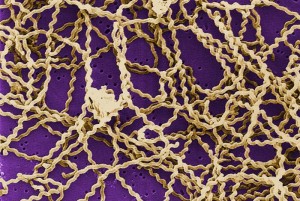Sri Lanka reports leptospirosis outbreak
Sri Lankan health officials have reported more than 600 cases of the bacterial disease, leptospirosis, in several districts, according to a Sunday Times report.

Image/CDC
The 614 cases have been reported from Anuradhapura, Kalutara, Galle, Kurunegala, Moneragala districts and from the Ratnapura gem mines.
Increased rains this season have created a wet environment conducive for leptospirosis transmission. The report notes that more than 70 per cent of cases of leptospirosis, are reported from areas of paddy cultivation.
The Health Ministry is formulating preventive measures as well as awareness programs to be conducted in high-risk areas.
For your information: Massey University researchers produce Leptospirosis video series
Leptospirosis is a bacterial disease that affects humans and animals. It is caused by bacteria of the genus Leptospira.
The bacteria that cause leptospirosis are spread through the urine of infected animals, which can get into water or soil and can survive there for weeks to months.
In humans, it can cause a wide range of symptoms, some of which may be mistaken for other diseases. Some infected persons, however, may have no symptoms at all.
Without treatment, Leptospirosis can lead to kidney damage, meningitis (inflammation of the membrane around the brain and spinal cord), liver failure, respiratory distress, and even death.